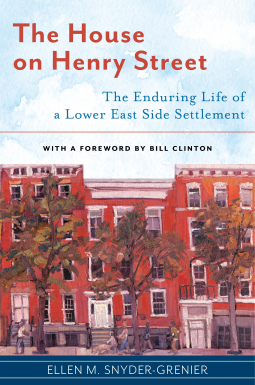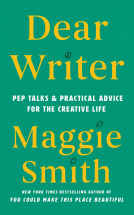
The House on Henry Street
The Enduring Life of a Lower East Side Settlement
by Ellen M. Snyder-Grenier
This title was previously available on NetGalley and is now archived.
Send NetGalley books directly to your Kindle or Kindle app
1
To read on a Kindle or Kindle app, please add kindle@netgalley.com as an approved email address to receive files in your Amazon account. Click here for step-by-step instructions.
2
Also find your Kindle email address within your Amazon account, and enter it here.
Pub Date Jun 16 2020 | Archive Date Aug 24 2020
NYU Press | Washington Mews Books/NYU Press
Talking about this book? Use #TheHouseonHenryStreet #NetGalley. More hashtag tips!
Description
Chronicles the sweeping history of the storied Henry Street Settlement and its enduring vision of a more just society
On a cold March day in 1893, 26-year-old nurse Lillian Wald rushed through the poverty-stricken streets of New York’s Lower East Side to a squalid bedroom where a young mother lay dying—abandoned by her doctor because she could not pay his fee. The misery in the room and the walk to reach it inspired Wald to establish Henry Street Settlement, which would become one of the most influential social welfare organizations in American history.
Through personal narratives, vivid images, and previously untold stories, Ellen M. Snyder-Grenier chronicles Henry Street’s sweeping history from 1893 to today. From the fights for public health and immigrants’ rights that fueled its founding, to advocating for relief during the Great Depression, all the way to tackling homelessness and AIDS in the 1980s, and into today—Henry Street has been a champion for social justice. Its powerful narrative illuminates larger stories about poverty, and who is “worthy” of help; immigration and migration, and who is welcomed; human rights, and whose voice is heard.
For over 125 years, Henry Street Settlement has survived in a changing city and nation because of its ability to change with the times; because of the ingenuity of its guiding principle—that by bridging divides of class, culture, and race we could create a more equitable world; and because of the persistence of poverty, racism, and income disparity that it has pledged to confront. This makes the story of Henry Street as relevant today as it was more than a century ago. The House on Henry Street is not just about the challenges of overcoming hardship, but about the best possibilities of urban life and the hope and ambition it takes to achieve them.
Available Editions
| EDITION | Other Format |
| ISBN | 9781479801350 |
| PRICE | $27.95 (USD) |
| PAGES | 256 |
Links
Featured Reviews
A remarkable look at the microcosm of the Lower East side culture over the last century. Henry House began as a settlement house, spearheaded by Lillian Weld. The author looks at the progress and challenges facing the center through the decades. The evolution projects the larger history of changes and the transformation of New York City. This book is an important piece of history for culture, immigration, social movements, and social history.
 Abby S, Reviewer
Abby S, Reviewer
A fascinating look at this iconic Henry Street settlement.I have relatives who long ago lived on the lower east side who tod us many stories about their lives there.This was acwobderf historical look at this building the people the stories the lives that grew there.Highky recommend this book will be giving it as a gift to people whose lives were touched by this area,
 Kim F, Librarian
Kim F, Librarian
What an interesting look at the birth and continual influence of Henry Street Settlement. I honestly had no idea of the existence of this area of New York City, and had even less knowledge of the impact on modern society. Without Lillian Wald, her grit, her determination, and without the backing she initially received from financier/philanthropist Jacob Schiff the world would be a much different place. Lillian created a social change and a haven of environment for lower class citizens, including immigrants and black residents who struggled to make ends meet. She gave them hope, and assistance with day cares, nursing, places to shelter, food, clothing - with her help, they were able to help themselves and improve their lives. As the years passed, Lillian and those who followed fought for some many rights and freedoms for all people - whether they were immigrants, lower class, uneducated; all women, men, children included.
This is a hard book to sit and read in one sitting - it is full of dates, historical figures and events; some I knew, some, I did not. It is informative, rather than entertaining, and not a book I would have picked up to read on my own. I am glad I saw the description and requested a copy to read in advance - it is a book of history, but more, it is a book of the power of human connection and how just one person can set into motion a chain of events that can and will change lives for future generations. It is a book of hard times befalling so many, but how people can rise up and accomplish greatness when given the smallest of opportunities.
Readers who liked this book also liked:
Ling Ling Huang
General Fiction (Adult), Humor & Satire, Multicultural Interest


















